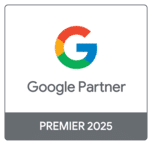- 8 Tips For An 80% Phone Booking Rate
- The Best Way To Get Employees Involved In Community Outreach
- Marketing + Shortcuts = Problems
- Google SGE Tactics For HVAC, Plumbing, & Roofing Companies
- You Are What You E-E-A-T
- Maximize Your Home Visits
- How to Automate Google Business Profile Posts With Real-Time Job Updates
- Why Business Owners Need To Be On Camera
- 8 Tips For An 80% Phone Booking Rate
- How to Automate Google Business Profile Posts Using BizReel
- Using AI To Enhance Nearby Now Checkins
- Adding Your Google Ads Account To Your Google Analytics
- V8 Scheduler: Quick Start Guide
- Geogrids In Nearby Now
- How To Add Questions & Answers On Your Google Business Profile
- Adding Quick Response Text Templates to LaunchSMS
- How Can Strategic SEO Boost Website Traffic For HVAC and Plumbing Companies?
- Case Study: All-Inclusive Marketing Program
- Repair Ads Pay Dividends For LeadsNearby Clients
- Matt’s Plumbing Up 88% In January Revenue
- Understanding PPC Helps HVAC Client Grow 22% In January
- Marketing Automation Case Study: Southside Plumbing Grows Revenue 263%
- 3 Ways Hydes Gets Found With Nearby Now
- 3 Ways Nearby Now Helps Your Plumbing Business
June’s AdWords Change Could Blow Your Budget
Prepare Now to Avoid Draining Your Campaign Funds
Google is changing the way it handles Enhanced Cost Per Click (ECPC) and it could cost you your entire daily Pay Per Click (PPC) budget if you’re not careful.
ECPC enables Google to exceed your specified maximum bid by 30% when it determines that a particular searcher is more likely than others to become a conversion for you. In other words, you’re paying 30% more because Google feels that you’re almost certain—but not guaranteed—to earn a conversion.
For example, with a $10 maximum bid per keyword phrase, Google could instead charge you $13 because you’re getting a better opportunity. They do this while attempting to keep your average spend at $10 and not going over your total budget for the day. So your next bid might be $7, for example, to balance out the $13.
The Change
In early June, Google will do away with the 30% ECPC cap. This may not be problematic for businesses that have a $2,000 per day PPC budget. But if your total daily budget is $250, for example, you could spend your entire daily budget with one or two clicks.
That’s especially true for the HVAC, plumbing and electrical industries where some keywords could be $70 to $80 per click. You’re taking a chance that two clicks will lead to a conversion. But, as we said above, there’s no guarantee.

Our Recommendation
The ECPC option is selected by default because it used to be a best practice. With the change, though, we recommend not taking that chance.
Therefore, for all of LeadsNearby’s PPC clients, we are removing the ECPC option from all campaigns. If LeadsNearby isn’t your PPC manager, we recommend disabling the ECPC, at minimum. If you are unsure how to navigate this, give your LeadsNearby account manager a call for help. We’re happy to help you through this.
Alternatives
To determine the conversion possibility, Google looks at a searcher’s history, behavior and other patterns. Since we have no access to that data, we are instead looking at certain patterns such as device type, time of day and location to determine if they are a conversion candidate. We then manually adjust the bid for ideal targets, typically—no more than 25-30%.
If you would like more guidance about these changes or any other questions you may have about your pay per click campaign, call in to speak with one of our owners, or our very own pay per click expert and source of this article’s information, Jessica Bermudez at (919)758-8420!
Google’s Home Service Ads Expand Across the Country » « Mister Sparky Case Study







